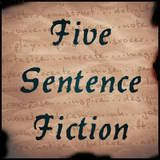
A good way to draw your reader deeply into your story is to use a variety of non-verbal cues in your dialogue. Try the following techniques to dial up your dialogue.
Facial Expressions
When a character raises an eyebrow or furrows his brow, this action gives the reader an additional clue beyond dialogue that indicates a change in the character’s emotional state. As the scene progresses and the emotional intensity rises; the character’s dissatisfaction grows into anger, for instance, the character might clamp his jaw, his nostrils may flare, or eyes narrow to a squint, his face may redden and so on. These are all commonly understood signs of anger.
To learn effective use of these cues, read classic works containing emotional encounters or watch good dramatic films with the sound turned off. Study the facial expressions of the actors and take notes of how they signal emotion. Continue reading “Dialing Up Your Dialogue”

 I was working steadily and pulled up a board to find, laying in the gap between two boards below the one I had in my hands, a fair sized copper head. I tossed the board I held aside and looked around for weaponry. Fortunately it was quite early in the morning; cool, and the snake had not yet had its coffee. I dispatched it easily and with little fuss. Had it been later in the morning, things might not have gone so well.
I was working steadily and pulled up a board to find, laying in the gap between two boards below the one I had in my hands, a fair sized copper head. I tossed the board I held aside and looked around for weaponry. Fortunately it was quite early in the morning; cool, and the snake had not yet had its coffee. I dispatched it easily and with little fuss. Had it been later in the morning, things might not have gone so well. One of the first known usages of the term “flash fiction” in reference to the literary style was the 1992 anthology Flash Fiction: Seventy-Two Very Short Stories. Editor James Thomas stated that the editors’ definition of a “flash fiction” was a story that would fit on two facing pages of a typical digest-sized literary magazine[
One of the first known usages of the term “flash fiction” in reference to the literary style was the 1992 anthology Flash Fiction: Seventy-Two Very Short Stories. Editor James Thomas stated that the editors’ definition of a “flash fiction” was a story that would fit on two facing pages of a typical digest-sized literary magazine[

 A while back I posted a
A while back I posted a  He sat staring at the small semi-automatic pistol laying on the kitchen table. He had been staring at it for a long time. Thinking. Deciding. He knew what needed to be done. The pain had to stop. Her pain had to stop. He hated what was happening to her, but he was powerless to prevent it.
He sat staring at the small semi-automatic pistol laying on the kitchen table. He had been staring at it for a long time. Thinking. Deciding. He knew what needed to be done. The pain had to stop. Her pain had to stop. He hated what was happening to her, but he was powerless to prevent it.
